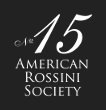Rossini’s Ory in Italian
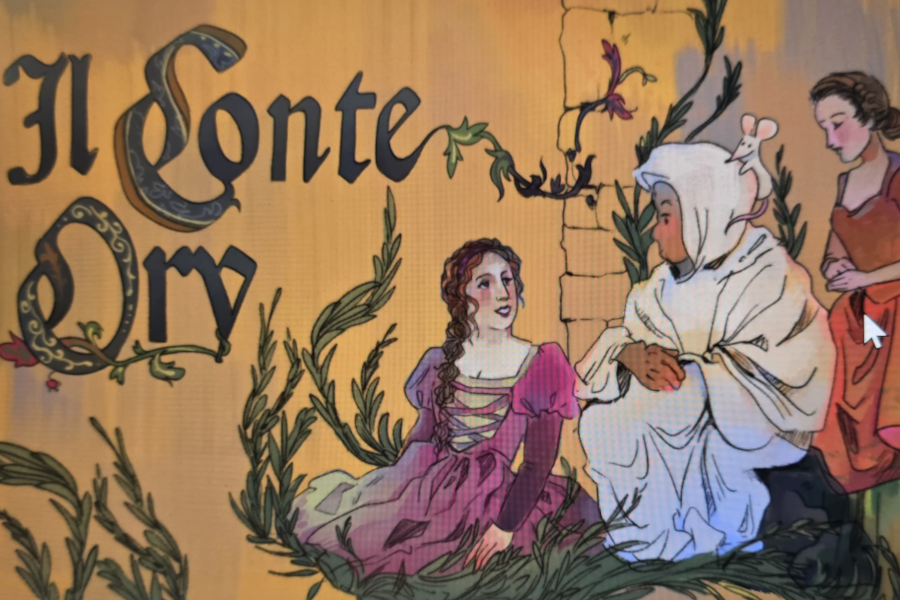
A rare opportunity to hear Rossini’s “Ory” in Italian. December 4 and 6, 2025
Ory in Italian? After the flurry of recent performances of Le Comte Ory in the original French one might be surprised that the opera was commonly performed in Italian in Italy for many years. There are some who prefer William Tell performed in Italian ( others feel this is scandalous) so why not give Il Conte Ory a listen? Rossini fans in the greater Cambridge MA area ( or even further afar) will have the oportunity to hear it, performed for a very select audience ( due to venue size) by a troupe of intrepid opera amateurs who in their professional lives work in fields such as biology, engineering and other non-musical fields. Its name? Pico Opera!
Pico Opera was founded in 2023 and is a company of young artists affiliated with MIT. They consist of both professional and amateur musicians, with special dedication to fostering inclusive opportunities for the MIT community. They welcome talented singers in the greater Boston area, as well as MIT affiliates, with MIT affiliates in particular coming from different levels of experience. Their performances have featured artists from a variety of local universities, including MIT, Harvard, the Boston Conservatory, Longy, Boston University and Wellesley.
One of their innovations is to provide opportunities for each member of the company, including their ensemble, to shine as soloists and to develop their skills in a positive environment. They do this by means of what is known as Pico Scenes where an aria not from the opera performed is incorporated at an appropriate musical and dramatic point into the opera. “Outside music” is nothing new in opera ( think “trunk arias”) but the way Pico did it with their recent performances of L’elisir D’amore was really elegant and seamless.
Please visit their website picoopera.org asap to secure tickets and learn more about this joyful enterprise.
Toscanini and Rossini
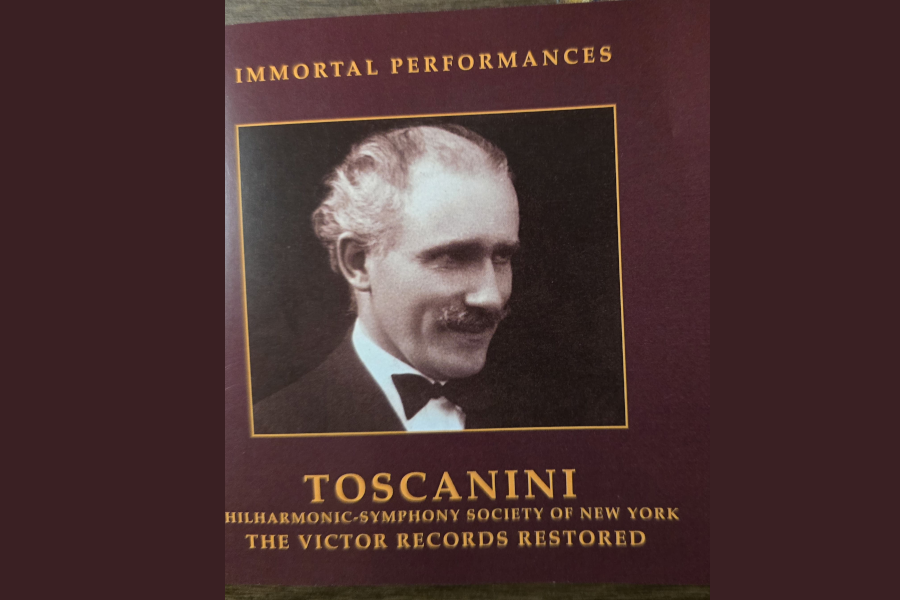
Thanks to the work of the Immortal Performances Recorded Music Society of Canada, we are now able to hear on CD, recordings remastered from original 78 rpm recordings of Toscanini conducting 4 Rossini overtures. The significance of these recordings should be apparent to those trying to understand both performance history and the traditions passed down from Rossini’s time.
Toscanini, apparently felt that Rossini was a significant composer ( the booklet notes expand on this) and recorded the overtures to Cenerentola, Barbiere, L’Italiana, and Semiramide.
Toascanini conducted large orchestras with instruments not necessarily like those for which these works were composed. The program notes do not mention which scores he had at his disposal, something that might be of interest as critical editions weren’t an issue in that era.
But bearing in mind that Verdi surely knew what Rossini’s performances sounded like ( or should have), and that Toscanini actually played in an orchestra conducted by Verdi ( though not Rossini of course ) there is something quite remarkable in this addition to our understanding of Rossini.
The famous “pulse” that the late Alberto Zedda often spoke about is there in all its glory. And although liberties are taken with tempos here and there, the energy which is at the heart at of Rossini’s overtures is there in all its glory.
This enterprise by Immortal Performances is worth the support of all Rossini lovers and to learn more about their work ( not restricted to Rossini) please visit their website : www.immortalperforances.org and consider supporting their work.
Giacchino Rossini and his global impact

Jakob Lehmann, known to Rossini lovers for his exquisite recording of L’Italiana in Algeri, and his superb conducting for Teatro Nuovo, makes a case in this video for Rossini’s global impact which surpassed Mozart’s at the time. Of course Rossini had some exceptional singers at his disposal, but what is often forgotten is that there Rossini was pushing the boundary with the orchestra as well. Modern orchestras tend to blur this quality and Lehmann makes a great argument for examining the role of the orchestra and the types of instruments that were used that the time.
From the Youtube notes:
Conductor Jakob Lehmann makes his London debut with the Monteverdi Choir and Orchestre Révolutionnaire et Romantique on 2 October 2025, launching a new series dedicated to exploring the music of Gioachino Rossini on period instruments. In this video, Lehmann discusses Rossini’s place as one of the most successful composers of his time, his distinctive style, and the impact of performing his works in historically informed contexts, as well as his own journey into music and his first collaboration with the Monteverdi Choir and Orchestras. The programme features two contrasting works: excerpts from Rossini’s opera Ermione (1819), a rarely performed drama set after the Trojan War, and the Stabat Mater (1841), one of the composer’s major sacred works.
Where’s Rossini ?
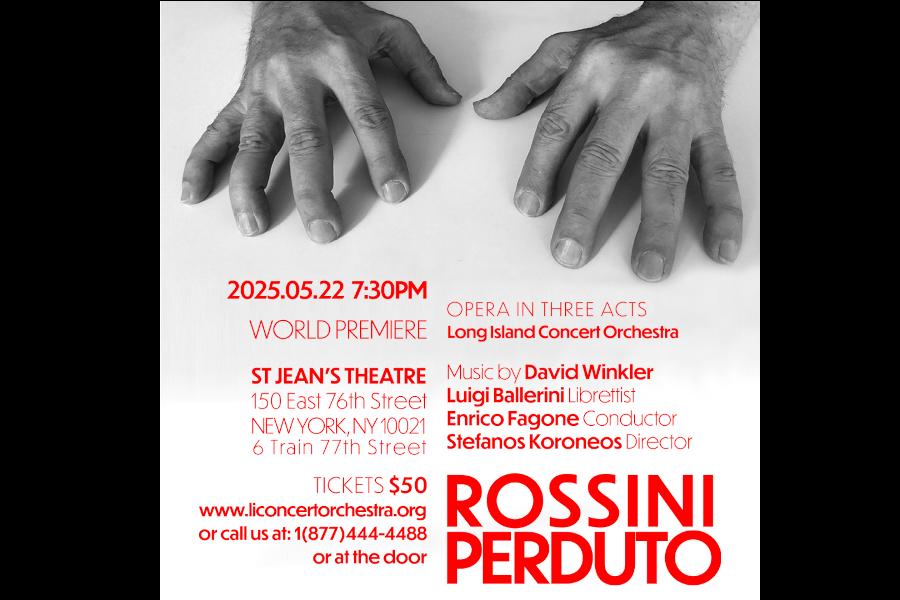
Rossini (or at least his spirit) pops up in unexpected places!
An intriguing event by the Long Island Concert Orchestra with the name “Rossini Perduto” is headed for NYC.
Curious Rossini fans in the area might want to check this out for themselves.
Who will be there? A few hints from the cast list:. Rossini, Madame Colbran, Madame Pelissier, Wagner, Dumas, Stendahl, and Beethoven – will Beethoven and Rossini finally meet after all these years?
Mark your calendars!
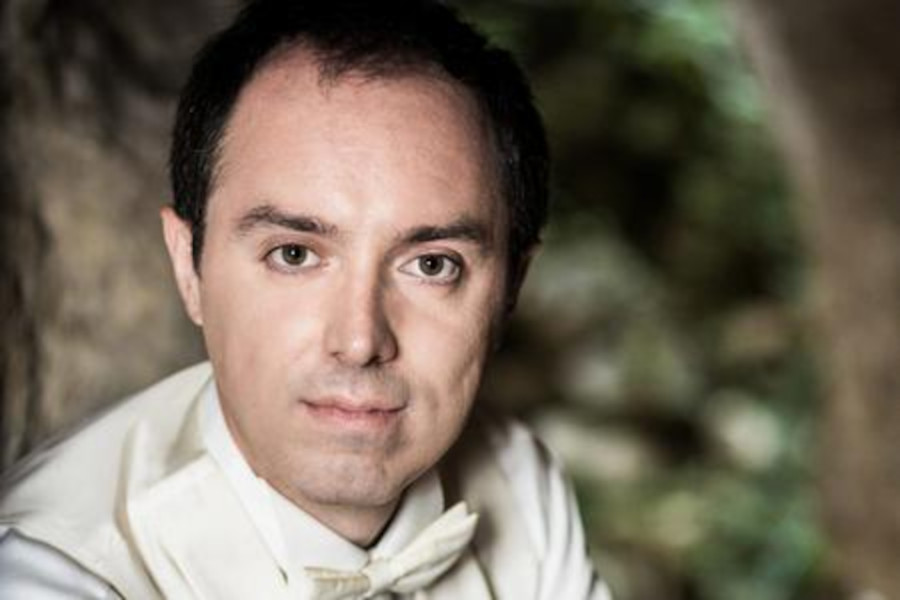
It’s not often American audiences have the opportunity to hear Rossini’s piano music performed. But on Sunday, February 23, 2025, Alessandro Marangoni, the young Italian pianist who has meant so much for the advancement of Rossini’s vast piano literature will be giving a recital in North Carolina. If you are in the area we hope you will attend. If you are not, how about trying to make a special trip. In any event if you are not able to attend you might listen to some of the selections he will be performing by checking out his recording of the complete piano works on Naxos.
Information about the concert:
https://www.chambermusicraleigh.org/alessandro-marangoni.html
Number 24 hope, joy, and a tribute
The Finale to William Tell will send us into the new year with hope.
We wish to thank all the people who have contributed to this year’s calendar either with suggestions, permissions to use their content, or simply enthusiastic support. Among them are Jurgen Gahre, Paolo Bordogna, Daniela Barcellona, Carla Di Carlo, Sergio Ragni, Alessandro Marangoni, Reto Muller, Molly Kelly, Celia Montgomery, Karl Varnik, Michale Nakamia, and Roberta Pedrotti. Grazie!
Dec 23 Help with last minute chores!
Not only will your home be in perfect order for guests, you will have witnessed a masterful combination of Rossini singing with nuanced and witty acting. Paolo Bordogna brings a special sort of humanity to this character which apparently Rossini didn’t particularly care for (but gave him a beautiful aria anyway!)
Dec 21 Patricia Schuman La morte di Didone Rossini
A lesser known Rossini gem by an even lesser known American Rossini singer.
Dec 20 Pure Zelmira
Keeping up the tradition of American tenors,Lawrence Brownlee shows that it’s the singing (not the director’s take) that makes Rossini great.
